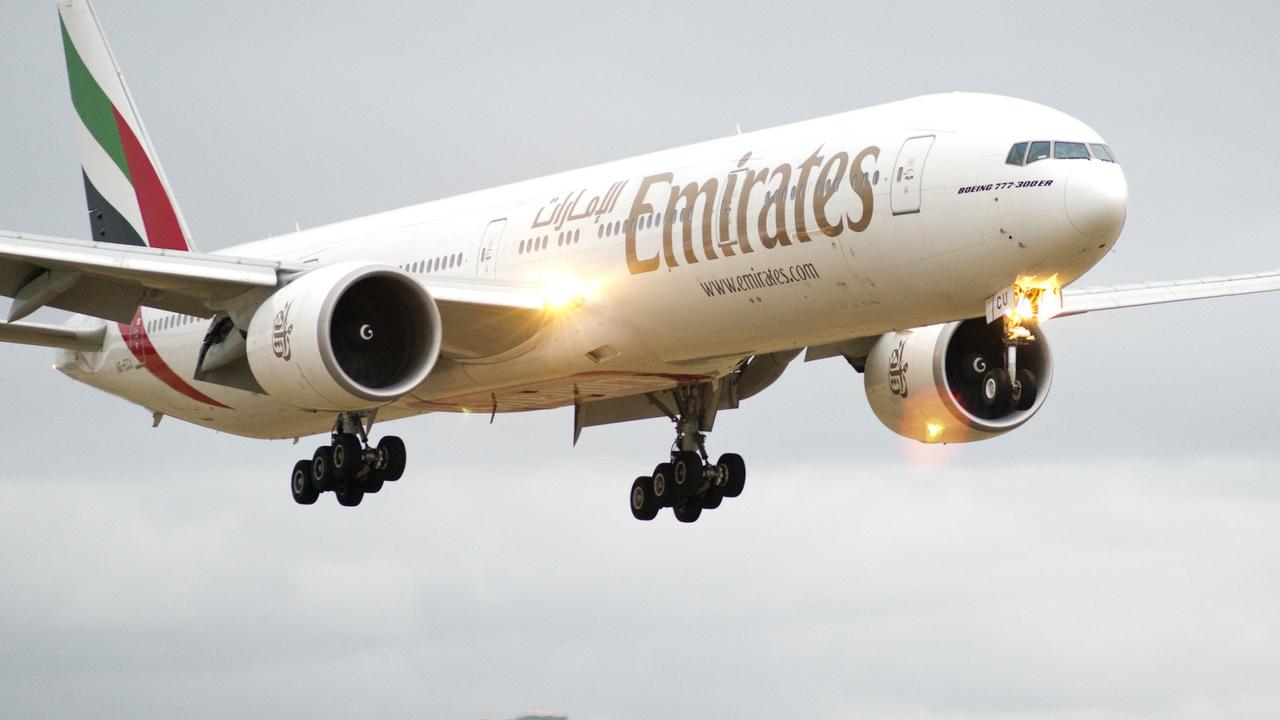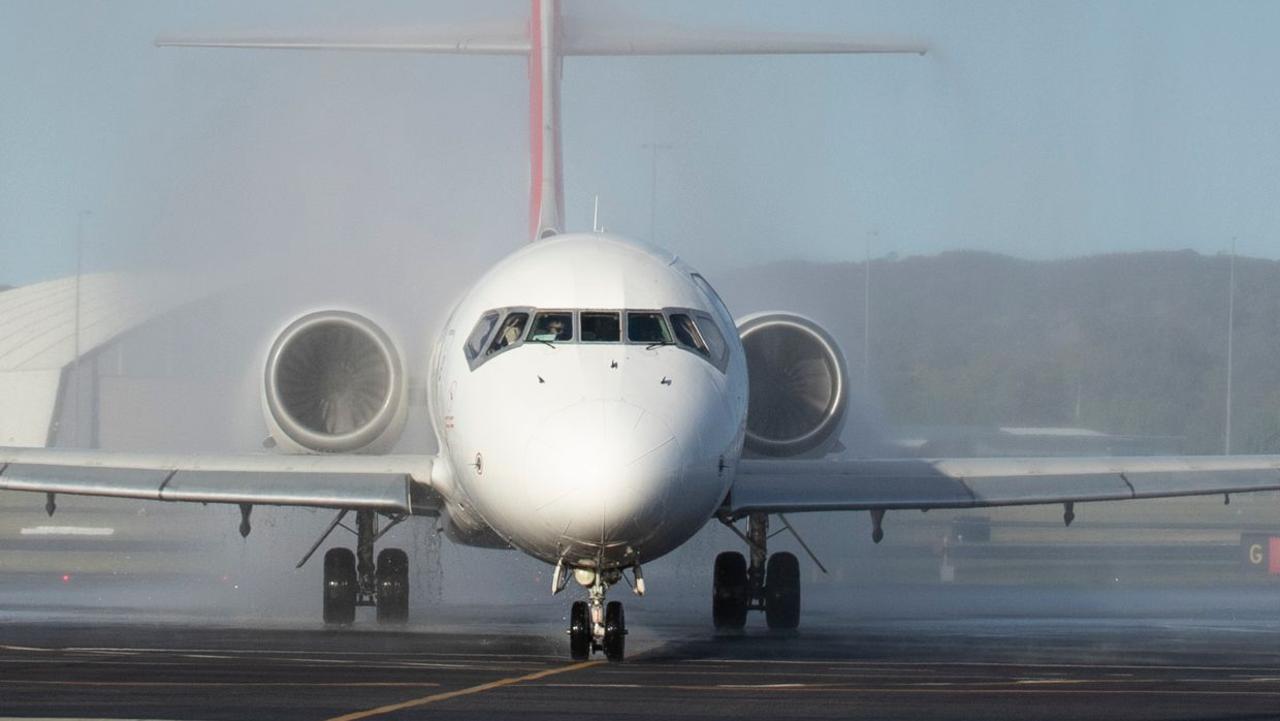Aviation analyst’s Aussie airfare prediction bad news for travellers
An aviation analyst has painted a bleak picture of what Australia can expect in the huge year that lies ahead.
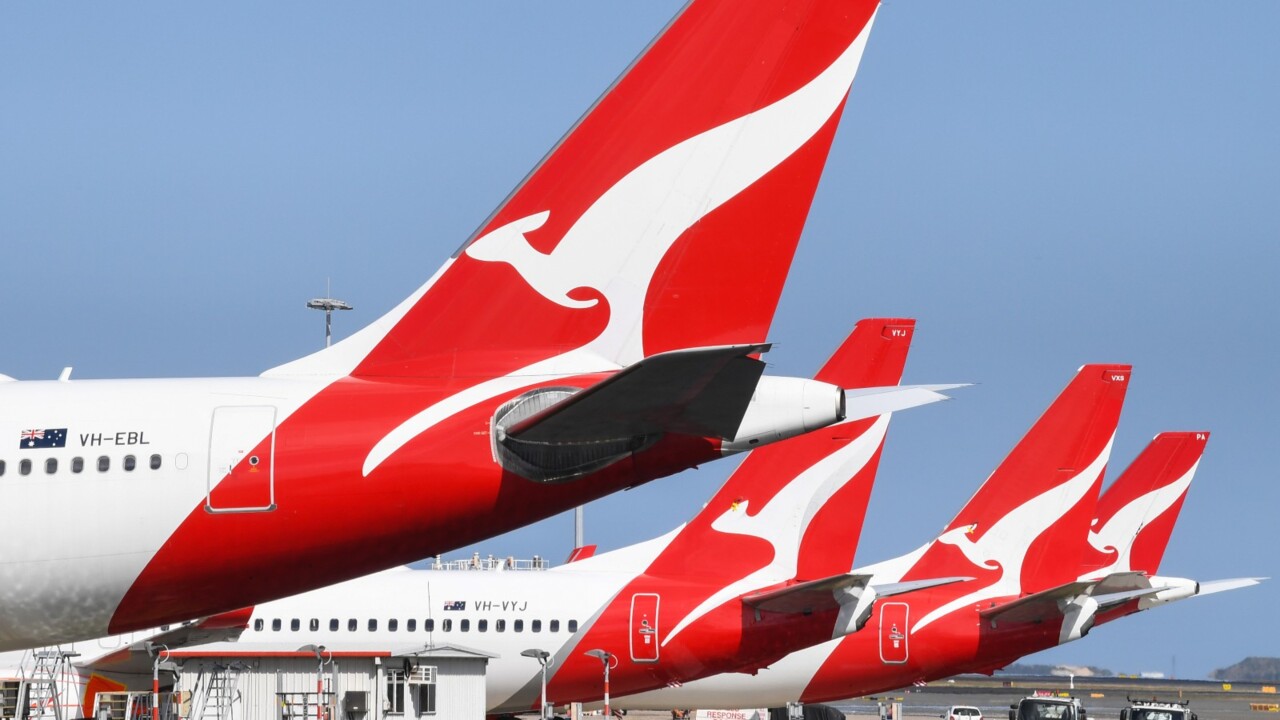
An aviation analyst’s prediction for Australian domestic airfares in 2024 spells bad news for travellers.
Speaking at Tourism Australia’s annual Destination Australia conference on Wednesday, Peter Harbison said Qantas — which he described as “the 800 pound Gorilla which can basically do what it likes in the market” — was up against Virgin Australia, Rex and Bonza which all “don’t want to rock the boat” as they try to recover.
“So what does that mean for fares? It means what I call a stable equilibrium for fares, which is not a good place to be if you are a consumer,” he said.
“It means there is very little prospect of downward pressure on fares, particularly if you add the ingredient that there is a shortage of capacity and skills and labour and so forth, and that costs are going up.
“So I don’t see a great deal of change in the Australian domestic fare situation unless we have a significant downturn in the economy which doesn’t look all that likely – hopefully.”
Qantas announced an average fare increase of 3.5 per cent for Qantas and 3 per cent for Jetstar in October, citing “sustained increases in fuel prices”.
Last month, when posting a 13 per cent drop in underlying profit, Qantas chief executive Vanessa Hudson said average fares – across international and domestic – had dropped by 10 per cent since peaking in December 2022.
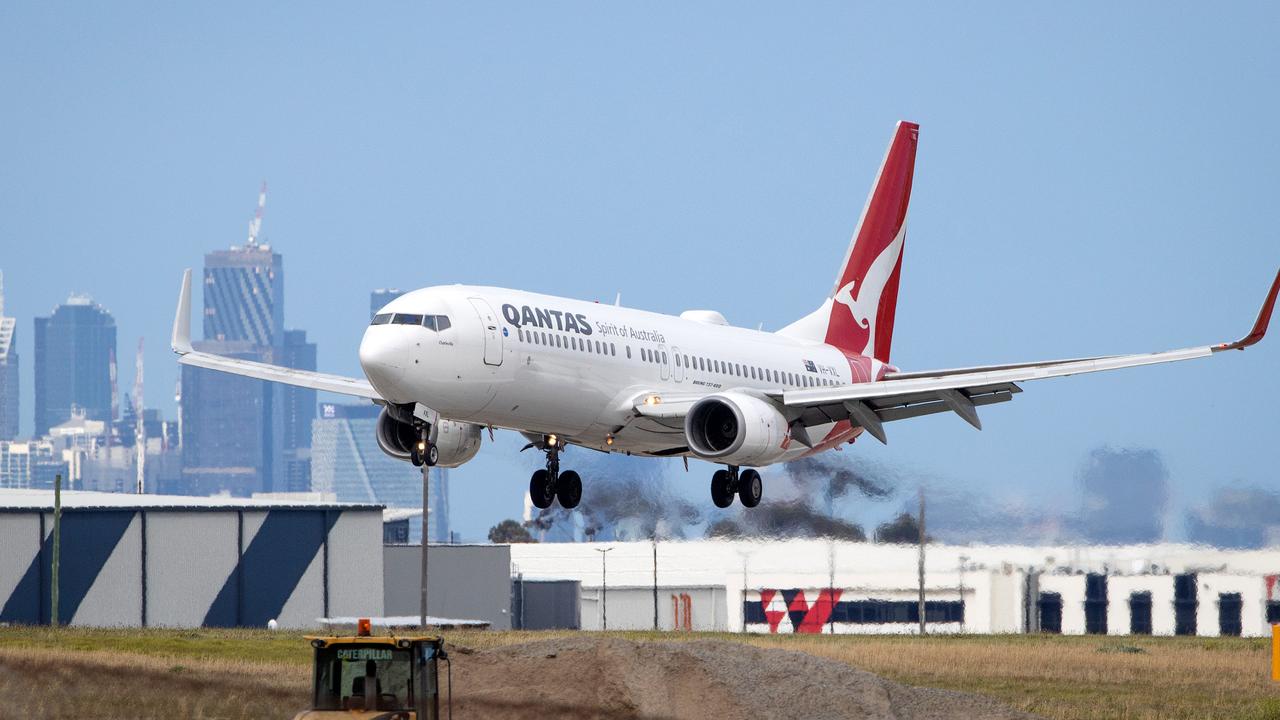
Virgin Australia was placed into voluntary administration in 2020 and was bought by private equity firm Bain Capital, which Mr Harbison expects will sell the airline this year.
“Private equity does not own airlines and operate airlines,” he said.
“Private equity makes money and private equity basically invests in products that look as if they can be improved, particularly when they are in a difficult position, maybe strip out a few costs, and later on sells down and makes a profit out of it.”
Mr Harbison speculated that Bain would not do an IPO for Virgin this year because it was not making enough profit and instead have a trade sale.
“That is to capitalise on their investment, they’ll have to sell down some of their shareholding to a trade buyer,” he said.
“Not many companies want to buy into an airline, let alone an airline that is in Virgin’s position at the moment.”
He said the only companies likely interested are other airlines, particularly foreign airlines.
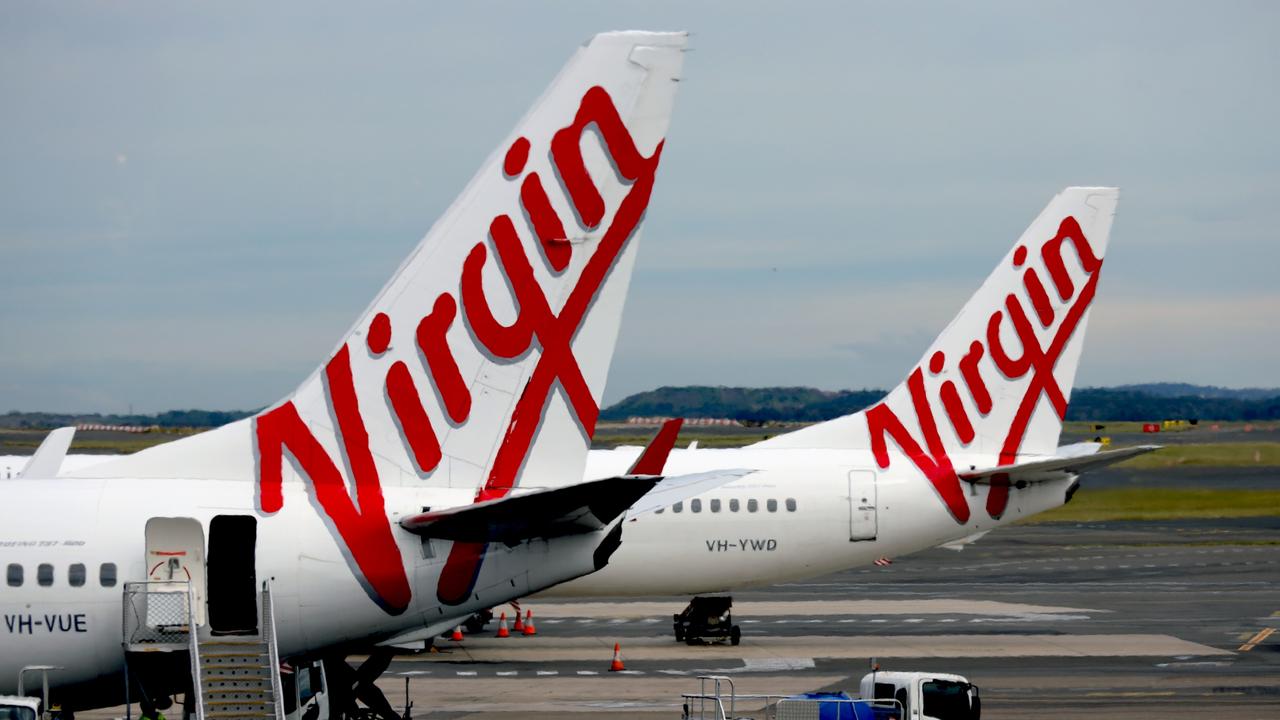
While any sale would be subject to the Foreign Investment Review Board’s approval, he further speculated Qatar Airways would be interested given its existing partnership with Virgin, or perhaps Singapore Airlines or Air New Zealand.
Last year, the Australian Government faced huge backlash for rejecting Qatar Airways’ request for more flights into the country. Qantas had made a submission opposing Qatar’s request.
Mr Harbison said the government would have a crucial decision to make on Virgin given Australia needed it to be stabilised and a solid competitor to stop a monopoly in the industry.
“That’s why this year is so important,” Mr Harbison said.
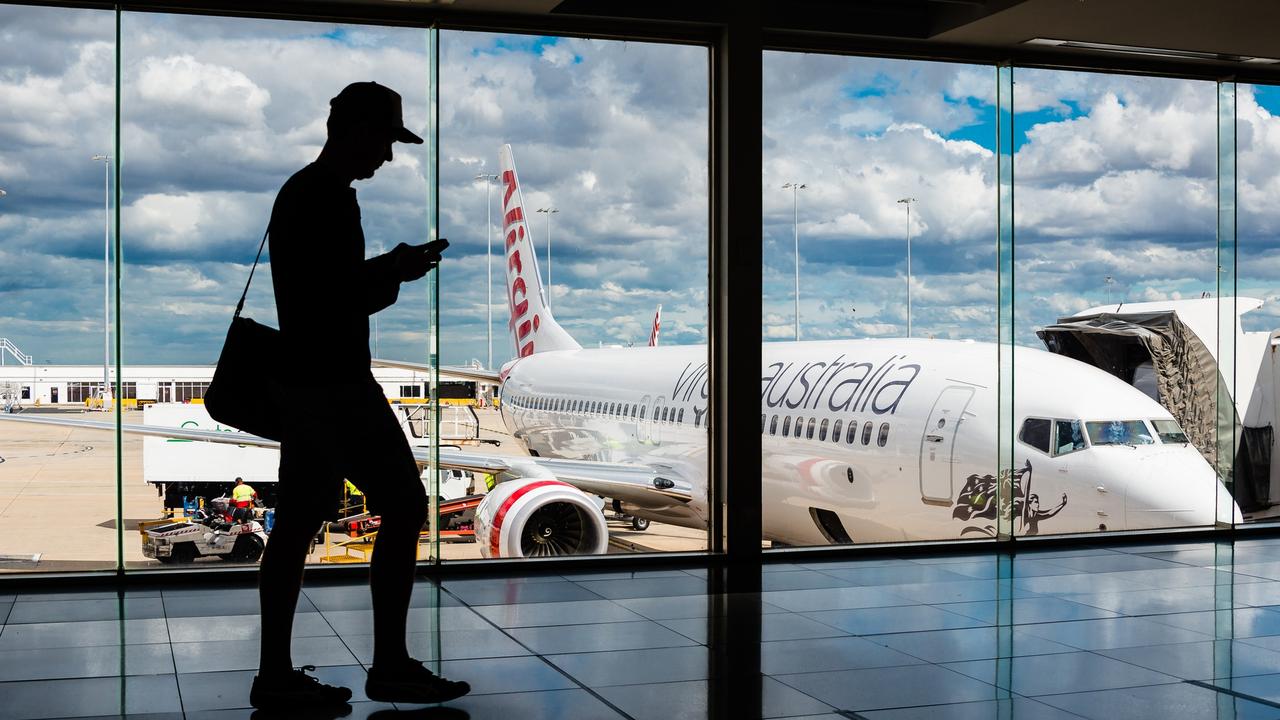
Speaking directly after Mr Harbison at the conference was Qantas’ Cam Wallace, who is chief executive of the international and freight divisions.
When questioned by event host Karl Stefanovic, Mr Wallace skirted the topic of lobbying against Qatar’s hypothetical attempt to buy Virgin Australia.
“We compete with whoever is put in front of us,” Mr Wallace said.
He argued that both the international and domestic market were competitive.
“I know Peter [Harbison] will disagree but we have actually got a very incredibly competitive market,” he said.
“We’ve got Rex, who are a strong competitor, we’ve got Bonza, who’s a ultra-low cost carrier, and we have Virgin who is a kind of mid-market player.
“So we have all kind of zones of competition in the Australian market. We’ve got the best flanker brand in Jetstar that I think any carrier has established.”
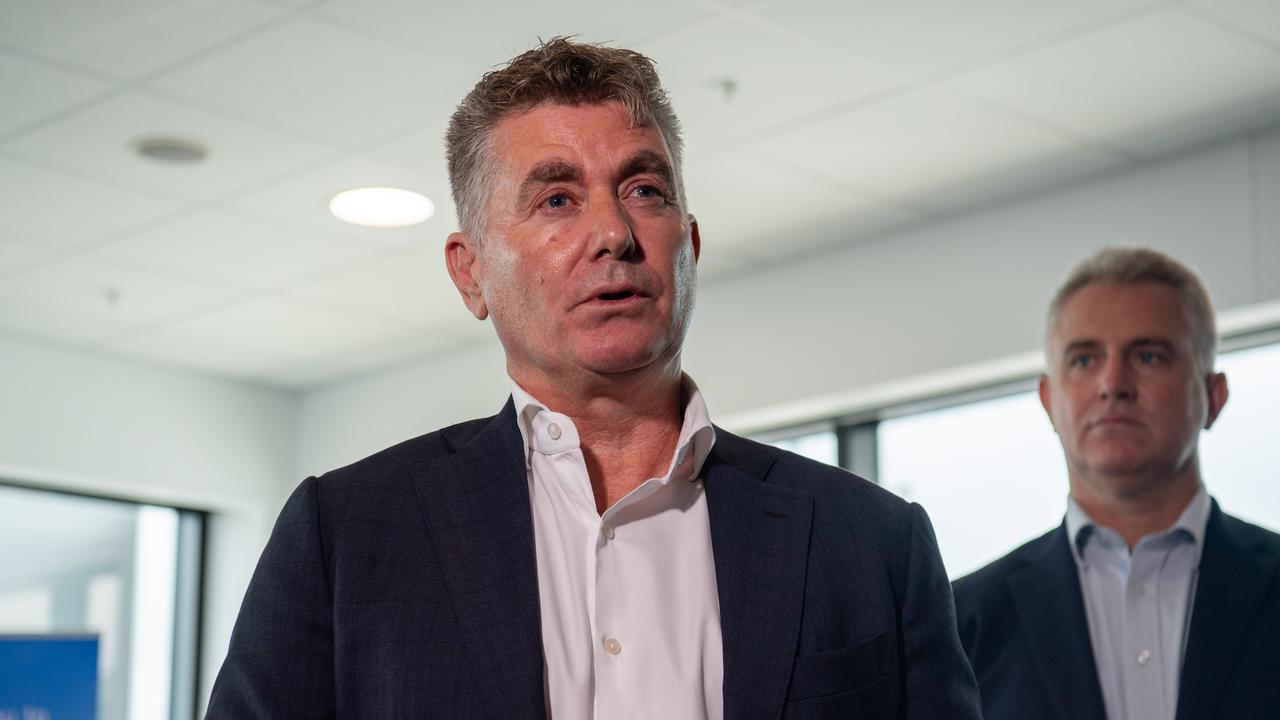
In January it was revealed that research by the government’s new Competition Taskforce found the price of plane tickets are halved when travellers can choose between three airlines on a route rather than one.
Assistant competition minister Andrew Leigh had delivered a speech in Melbourne about Australia’s need for greater competition and “signs the intensity of competition has weakened over recent decades”, including in the aviation industry.
He said many Australians suffered from a lack of competition.
“For example, for a resident of Darwin, it is often cheaper to fly from Darwin to Singapore than it is to fly from Darwin to Sydney – even although the international flight is longer than the domestic one,” Dr Leigh said.
As for the cost of international fares, speaking at Wednesday’s conference, Mr Wallace said we were already seeing cheaper fares as capacity increased in the last six months.
“What we’re seeing is what we refer to as more normalised seasonality,” he explained.
“So after pandemic we didn’t really have seasonality now we’re seeing low seasons, high seasons, shoulder seasons coming back.”


